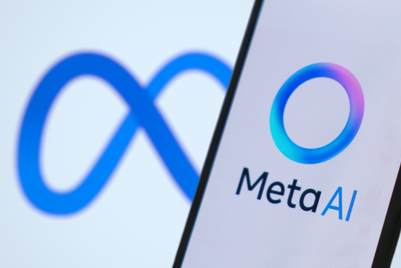
Ultimately what we need is for human intelligence and artificial intelligence to play nice.
So advised Australia’s chief scientist Alan Finkel about the future of AI earlier this year.
Focusing on the best way to integrate AI with everyday life, Finkel’s voice added to a growing ethical discussion. Although smart technologies are driving greater global connectivity and convenience, there is rising concern about the possible dangers of allowing machines to make autonomous decisions. And these fears aren’t unfounded; see Microsoft’s chatbot Tay, which became racist within just 24 hours, and Amazon’s unwittingly gender-biased recruiting system.
So, is it possible to harness the benefits of AI while minimising risk? The answer is yes, as long as marketers are prepared to put in some groundwork.
Join the move towards regulation
The changes being fuelled by intelligent tools aren’t entirely new. In the same way the first, second and third industrial revolutions brought rapid technological growth, the coming fourth age of automation will drive fast machine-led transformation. And, then as now, the world isn’t quite ready. AI development has moved so quickly that there aren’t yet any global rules for how it should be deployed, which leaves potential for smart tech to be applied unethically—whether intentionally or not.
Initiatives are emerging to address this gap, including Singapore’s recently formed Advisory Council. Counting Google, Alibaba and Microsoft among its members, the council sends a positive message that working to promote trusted AI use is crucial, as well as providing a valuable resource for brands across Asia-Pacific. But, for now, it’s largely up to marketers to govern AI implementations themselves.
Once processes are aligned with existing laws, such as the EU’s General Data Protection regulation (GDPR), marketers must set their own internal standards for acceptable AI practice. Beginning by ensuring the data feeding AI is accurate and ethical.
Build a solid data foundation
The efficacy or even morality of AI tools depends on the data they receive. So, entering fragmented or incorrect data will produce skewed output, which could have a negative impact on multiple counts. Marketing based on untrustworthy data could not only harm brand reputation but also damage customer relationships by delivering poor quality experiences. Clean and impartial data is therefore vital for successful AI usage.
And to obtain such data, there are two key steps marketers can take:
1. Avoid human error
Because machines have no inherent bias, it’s probable any subjectivity that makes its way into datasets comes from humans. For example, if a non-diverse team generates the data that powers AI tech, there is the chance unconscious partiality could affect results. Equally, human failure to check data for biases can also be problematic, as shown by Amazon’s recruitment tool. Trained with data about past hires for certain job categories that were mainly male, the system began to discriminate against female candidates for engineering roles.
This makes it essential to build an internal culture that actively prevents bias and a heterogeneous workforce capable of creating objective data. It might also be worth adopting tools designed to remove unwanted bias, such as IBM’s AI Fairness 360.
2.Unify disjointed data
When information is stored in separate departments or platforms, it can be difficult to provide holistic data for AI to leverage—be that customer profiles, audience segments, or performance insights. As a result, marketing communications informed by such data are likely to be inconsistent, irrelevant, and disengaging. To avoid losing customer favour, marketers therefore need to focus on unification. For instance, by adopting tools that blend all cross-channel data—related to individuals, campaigns or products—into a standardised data layer, they can give AI programmes a single reliable source of truth.
Enhancing marketing and beyond
Within the industry, AI is already helping to gather in-depth audience insight at vast scale, streamline workflow, and automate time-consuming tasks. That’s why over half (51%) of global leaders are using AI and 27% plan to by 2019. Looking further than marketing, it also has the potential to effect bigger societal shifts; imagine a world where ethical and legal data is shared and used to enhance healthcare and transport. Or to build and run smart cities where real-time insight eases traffic.
But before such visions can become realities, it’s important to get the basics right. We need an official set of AI standards that defines the ‘automation line’ and ensures businesses don’t cross it. And companies must also commit to handling data with dignity. Determining ethical standards and taking steps to drive AI tech with accurate insight is imperative for all businesses—and brands—to thrive amid the automated revolution, and keep a firm grip on customer trust.
Joseph Suriya is APAC director of marketing with Tealium, a US-based software company.



.jpg&h=334&w=500&q=100&v=20250320&c=1)



.png&h=334&w=500&q=100&v=20250320&c=1)
.png&h=334&w=500&q=100&v=20250320&c=1)

.png&h=334&w=500&q=100&v=20250320&c=1)

.png&h=334&w=500&q=100&v=20250320&c=1)



.jpg&h=268&w=401&q=100&v=20250320&c=1)



